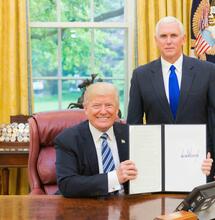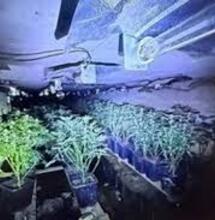Marijuana In Our Blood

Discovery of the cannabinoid system in our bodies is considered a new breakthrough in medical science. Currently, over 100 research teams in renowned hospitals and universities in many countries explore this new territory. Numerous patents have been filed by major drug companies. The patents claim that cannabinoid receptor drugs have the potential to cure many serious conditions, including MS, Parkinon's and Alzheimer's disease, rheumatoid arthritis, epilepsy, mental illnesses, heart disease, and cancer. Finally, Big Pharma is beginning to see the medical value and the lucrative business in (synthetic) drugs derived from cannabis.
Discovery of the cannabinoid system in our bodies is considered a new breakthrough in medical science. Currently, over 100 research teams in renowned hospitals and universities in many countries explore this new territory. Numerous patents have been filed by major drug companies. The patents claim that cannabinoid receptor drugs have the potential to cure many serious conditions, including MS, Parkinon's and Alzheimer's disease, rheumatoid arthritis, epilepsy, mental illnesses, heart disease, and cancer. Finally, Big Pharma is beginning to see the medical value and the lucrative business in (synthetic) drugs derived from cannabis.
Discovery of the cannabinoid system in our bodies is considered a new breakthrough in medical science. Currently, over 100 research teams in renowned hospitals and universities in many countries explore this new territory. Numerous patents have been filed by major drug companies. The patents claim that cannabinoid receptor drugs have the potential to cure many serious conditions, including MS, Parkinon’s and Alzheimer’s disease, rheumatoid arthritis, epilepsy, mental illnesses, heart disease, and cancer. Finally, Big Pharma is beginning to see the medical value and the lucrative business in (synthetic) drugs derived from cannabis.
Even the Health and Human Services Division of the prohibition-driven U.S. federal government holds a patent called Cannabinoids as antioxidants and neuroprotectants, issued October 2003, which reads: “Cannabinoids have been found to have antioxidant properties, unrelated to NMDA receptor antagonism. This new-found property makes cannabinoids useful in the treatment and prophylaxis of a wide variety of oxidation associated diseases, such as ischemic, age-related, inflammatory and autoimmune diseases. The cannabinoids are found to have particular application as neuroprotectants, for example in limiting neurological damage following ischemic insults, such as stroke and trauma, or in the treatment of neurodegenerative diseases, such as Alzheimer's disease, Parkinson's disease and HIV dementia.”
One of the cannabinoid receptors (CB1).
For decades, experiments on men and animals have indicated that cannabinoids, compounds found in cannabis, can reduce tumors, kill microbes, lessen symptoms of many serious diseases, and help with chronic pain, anxiety or insomnia. The discovery of recent years is that the human body makes its own cannabinoids. Cannabinoid receptors have been found in practically all animal species which shows the critical role they play in maintaining physiological functions in living organisms. Scientists have just discovered how complex our own internal (endo) cannabinoid system is. We all have an Endo-Cannabinoid System (ECS) in our bodies that regulates our health and well-being. Doctor Robert Melamede from the University of Colorado explains that everything in our bodies is regulated by marijuana-like compounds that our bodies produce: the immune system, the nervous system, and the reproductive system are all coordinated by cannabinoids. The number of receptors is much higher than that of other neurotransmitters. The previous discovery of similar systems of dopamine and serotonin was considered a giant step in science and a real breakthrough in medicine - and the number of cannabinoid receptors is 12 times higher! Scientists talk about an approaching revolution in medicines for depression, insomnia, and many other mental disorders, as well as serious physical diseases.
First, researchers discovered anandamide (from Sanskrit for "happiness"). Now science knows 4 other transmitters, and expects many more. The 2nd ECS, separate from the brain system, is located in the heart. Protective measures exerted by cannabinoids on a damaged brain or heart are just as if nature protected the two vital organs by means of the same tool. Many cannabinoid receptors can also be found in cells of the immune system and major organs: kidneys, liver, or pancreas. The ECS is activated in humans during exercise. Blood concentrations of anandamide more than double in trained healthy volunteers after strenuous hiking. Mother's milk contains exceptionally large quantities of our “internal marijuana”. Among some African nations children who are no longer breast-fed are given a nutritious gruel of hempseed.
Cannabis contains anti-inflammatory, anti-oxidant, and probably anti-cancer compounds. Doctor Raphael Mechoulam from the Hebrew University in Jerusalem with fellow researchers have identified nearly 30 separate therapeutic effects in cannabinoids other than THC. They include anti-cancer, anti-diabetic, and anti-stroke properties, as well as neuroprotection. In 2006, Professor Barbara Malinowska of the Medical University of Białystok and Professor Eberhard Schlicker of the University of Bonn received the Polish-German Copernicus Scientific Award for research on the influence of cannabinoids on human brain.
Mitch Earleywine, Associate Professor of Psychology at the State University of New York at Albany and an expert on addiction, writes in Understanding Marijuana: a New Look at the Scientific Evidence: "Research on smoked marijuana, THC, and other cannabinoids, though often hampered by bureaucratic obstacles, still shows possible pharmaceutical use." Earleywine has not found any data to justify the proposition that marijuana causes social problems like aggression, careless driving, lessened productivity, or lack of motivation. He writes: "We are close to a point where people can tolerate those who think differently. Perhaps we can tolerate people who want to use marijuana without doing harm to themselves or others."
Natural vs. Synthetic: Struggle for Billions
The ideology of Western treatment is synthesis, and the base of the pharmaceutical industry is patent law. According to industrial medicine proponents, nothing from nature can be trusted, and only artificially manipulated and patented medicines should be studied, developed, and eventually sold. Naturally occurring substances cannot be patented or protected from competitors in order to earn a fortune on them. Doctor Andrew Weil, author of The Natural Mind and one of the pioneers in cannabis research, states that pharmaceutical companies are quite threatened by the idea that people may have direct access to substances that heal. There is great effort to scare people away from natural medicine and convince them that synthetic products are much safer. However, in Dr. Weil’s opinion quite the contrary is the case: natural medicines are usually much less dangerous than synthetic ones.
It is difficult to patent common natural substances or, in other words, secure a business or corporation against competition; there can be no monopoly on the production and sales of such medicaments. Where Mother Nature is concerned, knowledge is common, and everyone can copy ideas or prescriptions; it is hard to keep trade secrets. Pharmaceutical companies do not see any prospects for high profits. What is more, they perceive natural medicaments as a threat to their trade. The executives of pharmaceutical corporations do not take a Hippocratic Oath to become members of the respected medical profession. The interests of the private business sector are often totally different from the public interest, let alone the interests of the patient. For stock market quotations of pharmaceutical multinational corporations, natural or holistic medicine means only bad things: low profits, as competitors can react immediately while prices cannot be jacked up endlessly; low sales to patients who are thus able to heal themselves by growing medicinal plants or finding the necessary substances in nature. And what’s the real nightmare of the stock market machine, a.k.a. the medical industry (a term recently invented by the media, as opposed to old-fashioned “health care”)? A cheaply treated patient and a healthy society. Will the interests of public health or big business prevail?
The international crusade of the pharmaceutical corporations against natural remedies is easy to understand. Natural substances are not attractive to the big pharmaceutical industry, and cannabis is not the only case. The most striking examples are substances used to treat conditions which conventional medicines provide only limited relief to, such as drug dependence. Treatments with many potent psychedelic medicines hold great promise for chronic alcoholics and other drug addicts or people suffering from trauma. Ibogaine, a psychedelic drug from Western Africa, has been shown to help people withdraw from opiate addictions; it may be also useful in overcoming or reducing other addictions, including dependency on nicotine, alcohol or amphetamine. Not only do these natural drugs remain undeveloped, but they have been made illegal in the US and many wealthy countries, which makes all serious scientific research practically impossible.
Double Standards
Plants have no lawyers, and natural drugs continue to be the focus of a smear campaign launched by the media and the modern pharmaceutical industry. It is a pity that governments do not show such concern about public health when it comes to the synthetic drugs of big pharmaceutical companies or legally available products like nicotine and alcohol. Considering the constant criticism cannabis and other natural remedies receive, much worse things can be said about universally administered synthetic drugs for depression, anxiety, insomnia or even the common cold. Many of them cause serious side effects, liver or kidney damage, or may even kill. Although as many people as a quarter of the world’s population have used hemp as a drug for thousands of years, there have been neither numerous nor serious adverse effects recorded. Seldom can something like that be said about other medicines, not to mention our legal ‘highs’. A growing number of people are learning about natural remedies and starting to apply natural medical treatments as cheaper, safer, less toxic, and less addictive. And this is not about substituting one pill for another, an herbal drug for a synthetic one. Natural remedies are paving a path to a holistic approach toward one’s life and to a healthy lifestyle. Even a skeptical establishment starts to admit this can be a proper attitude toward the future.
In the opinion of a growing number of specialists, the reluctance to look for natural solutions is a big mistake. Doctor Arnold Demain, a biochemist from Drew University in Madison, New York, points out that nature is much more capable of creating interesting chemical molecules than chemists: by ignoring natural sources, the industry is losing a great deal. Instead of creating totally new products from scratch, they could be developing ready ideas. After all, these have been tested in the laboratories of evolution for millions of years. Clearly, the pharmaceutical industry seems to have forgotten about the success of penicillin and many other well-known medicines obtained from nature. Medical science has achieved undisputed success in the struggle for human life and good health. Physicians battle and win against epidemics; great progress has been made in surgery and emergency rescue; in fighting contagious diseases, heart attacks, hemorrhages. Some successes are truly spectacular. Traditional herbal medicine can do little in such cases. However, this does not mean that plants have nothing to do with the successes of modern medicine. Famous medicines like penicillin, aspirin, or quinine are of natural origin. Aspirin was synthesized as salicylic acid from willow bark. It is the number one medicine all over the world. Plants often are the only effective remedy (e.g. against malaria). They act as natural antibiotics (garlic) or hormones. Recently, a Norwegian fungus has enabled more effective organ transplants. Many heart and cancer medicines are produced thanks to plants.
In 2012, researchers from the Endocannabinoid Research Group in Italy reported that cannabidiol (CBD) and several cannabis extracts reduced viability of prostate cancer cells. The plant extracts were more effective than single cannabinoids! However, cannabis - as a naturally occurring and inexpensive source of better and safer relief, is particularly offensive to the modern concept of medical treatment. Synthetic marijuana pills would cost patients hundreds or thousands of dollars a month, while growing organic medicine would be practically free. Today, patents which were supposed to bolster the development of science are being used to block it. In the light of regulations concerning genetic engineering, even the deaths of patients exposed to experimental treatment are kept secret. Best-selling author Michael Crichton, a Harvard Medical School trained physician, calls this a crime: science used to be commonly understood as research carried out in order to improve human lives, and not as a profit-making enterprise.



